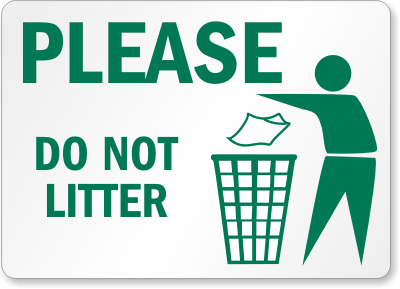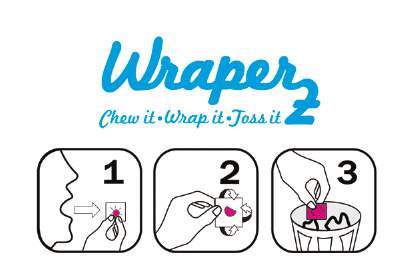


It is not an urban mystery but more of a mass denial. Gum littering has become acceptable and even though littering and spitting is officially prohibited under most city regulations, we have learned to just block it out. It is estimated that over 50 million pieces of gum are chewed every day. That is over 50 million gum blobs that most likely end up disposed of improperly and appear wherever you go, ruining your pants, or your shoes.
Chewing gum is not biodegradable and will stick to its surface for many, many years until treated. A basic ingredient of chewing gum is a synthetic rubber which does not dissolve. You cannot compost chewing gum, because it won't break down. Chewing gum is not digestible. Small birds have died when mistakenly eating it.
Gum is already banned in Singapore. Britain is in its 6th year campaigning to reduce levels of chewing gum litter. Offenders spitting their used gum on the ground risk receiving a fine of up to £75.
| Chewing gum
statistics. |
|
| Annual U.S. chewing gum sales | $2 billion |
| Total value of the entire Chewing Gum Industry | $19 billion |
| Total number of sticks of chewing gum made every year | 374 trillion |
| Percent of all chewing gum manufactured by Wrigley | 35% |
| Total number of chewing gum manufacturing companies | 115 |
| Number of U.S. chewing gum companies | 30 |
| Tons of chewing gum consumed each year | 100,000 tons |
| Diameter of the largest bubble gum Bubble ever blown | 23 inches |
| Average amount of sticks of gum each person chews every year | 300 |
| Amount of calories chewing gum for one hour burns | 11 calories |
| Number of years old the world’s oldest piece of chewing gum is | 9000 years |

If you are a pet lover and you have a dog, please beware! The sweetener xylitol, commonly used in a sugar free gum is toxic to dogs. It can cause hypoglycemia in dogs for years. Also it has been discovered that it can cause acute liver disease and a coagulopathy (inability to clot the blood). A study found that 0.5g/kg or more of ingested xylitol can cause liver failure.


Copyright ©2012 RBBR s.r.o. All rights reserved.
